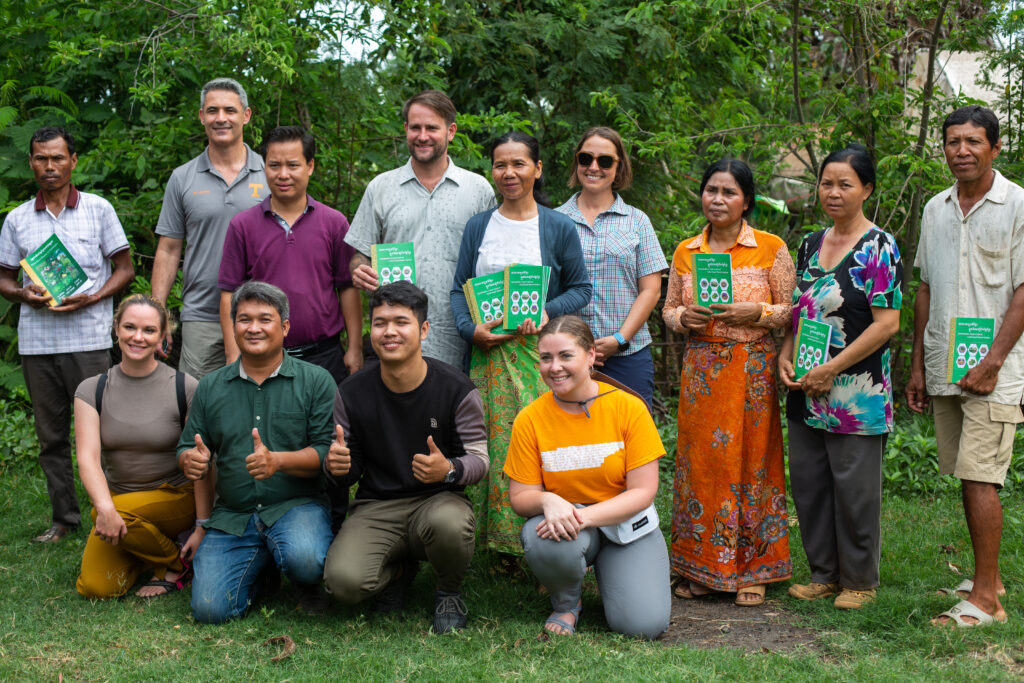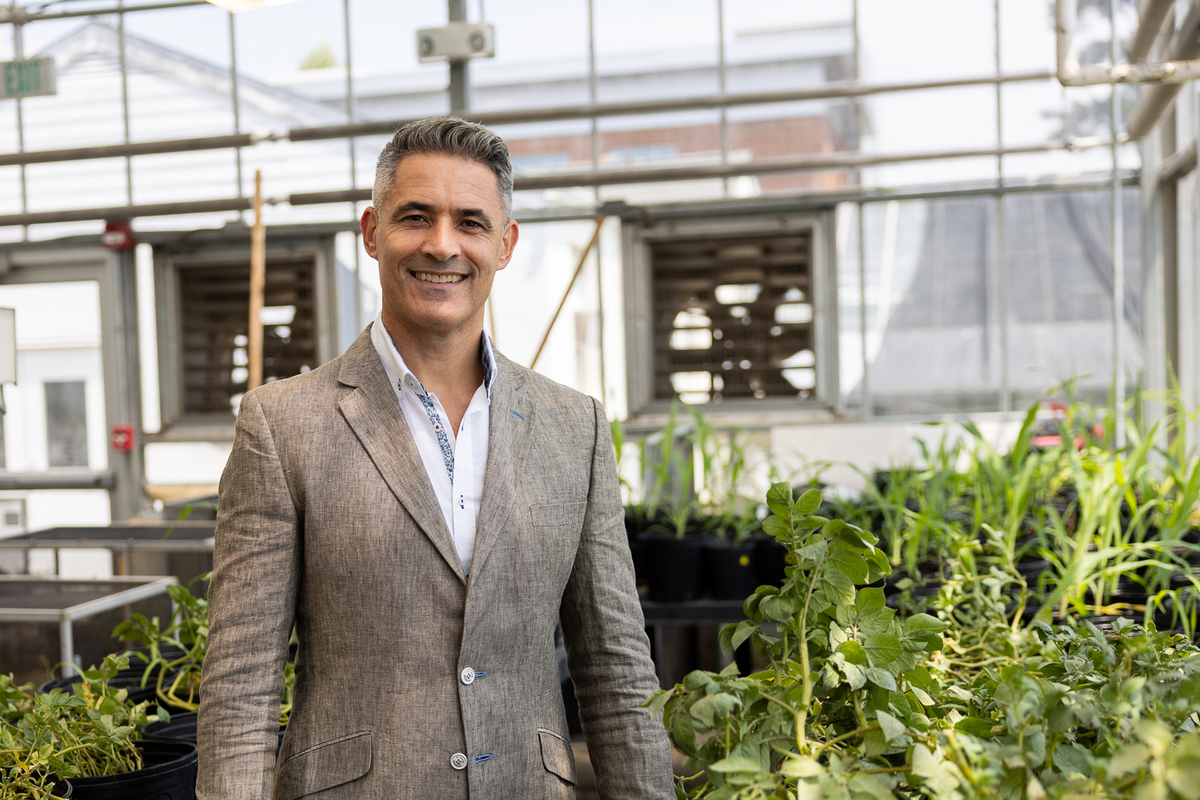
Professor of Entomology and Plant Pathology develops innovative and environmentally friendly insect control tools to support farmers in Tennessee and beyond
Where are you from and how did your career journey lead you to UTIA?
I am a native of Valencia, Spain. My journey at UTIA started when I was an assistant research scientist at the University of Georgia and decided to apply for an assistant professor position in Insect Physiology at UTIA. I remember not knowing much about UT and my father-in-law sharing how beautiful Knoxville was, so I applied to the position and fortunately was chosen as a finalist.
What is your main research focus, and why is it important?
My research goal is to develop and improve environmentally conscious, safe, and effective insect control tools. Most of my work focuses on the mode of action and resistance mechanisms to both insecticidal proteins produced by the bacterium Bacillus thuringiensis (Bt) and insecticidal gene silencing.
Why is this work important? Environmentally safe biopesticides are needed to address the current loss of about 1/3 of the global potential harvest to insects. Biopesticides based on Bt represent 90% of the global microbial pesticide market and are a critical component of pest control for organic farmers. Moreover, transgenic crops expressing Bt insecticidal genes represent >85% of the US cotton and corn acreage and have been planted in more than a billion acres globally. This high reliance on Bt for pest control emphasizes how important it is to preserve the activity of Bt insecticidal proteins and the high yields, low toxicity, and areawide pest control benefits they provide.
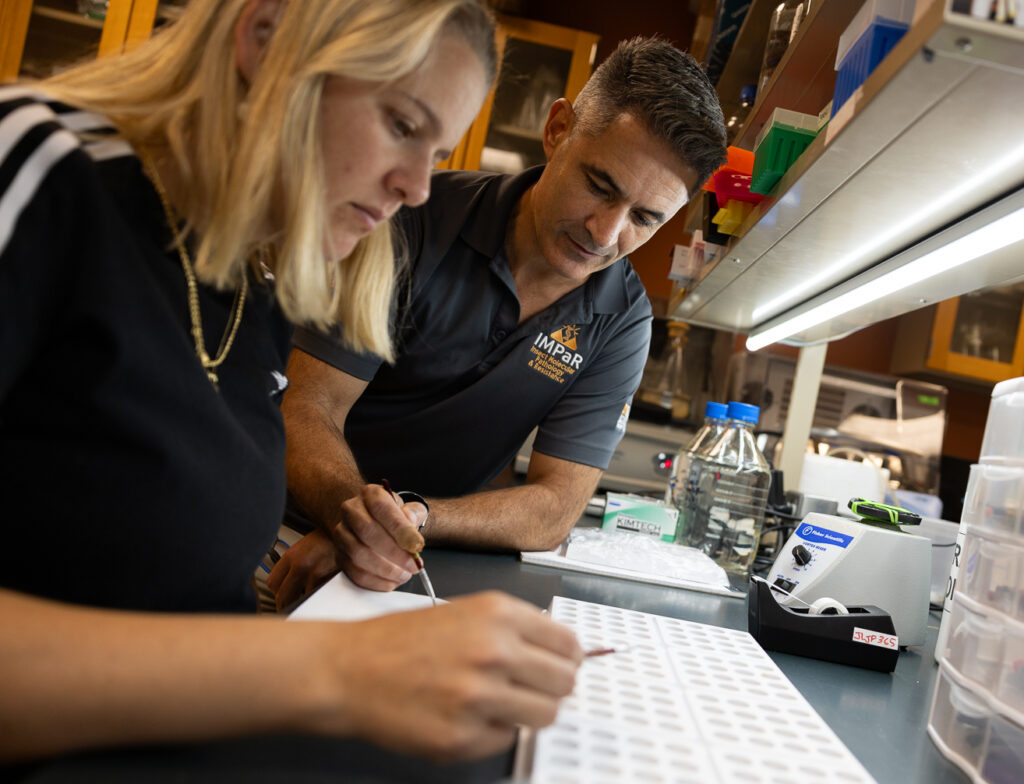
Currently, the most serious threat to these benefits is the evolution of pest resistance, which is the focus of many of our projects. While insecticidal gene silencing technology is in its infancy commercially, it is expected to have a tremendous impact on the way we protect our food and fiber crops as well as how we control mosquitoes and other pests of medical importance. The information obtained through our work guides the improvement of these pest control technologies, advances new pest control tools, and helps develop resistance management and prevention tools.
Why entomology?
Growing up, I always wanted to be a large animal veterinarian. When I finished my studies in Spain, I was given the opportunity to work towards a PhD degree at the University of Georgia even though I did not realize it was in Entomology. Before that, I had not crossed paths or thought of Entomology as a career. After my first course in Entomology, I was completely hooked and fascinated by the world of insects. I feel so fortunate to work with this amazing group of organisms! Learning about how they adapt to their environment seems at times a science fiction novel.
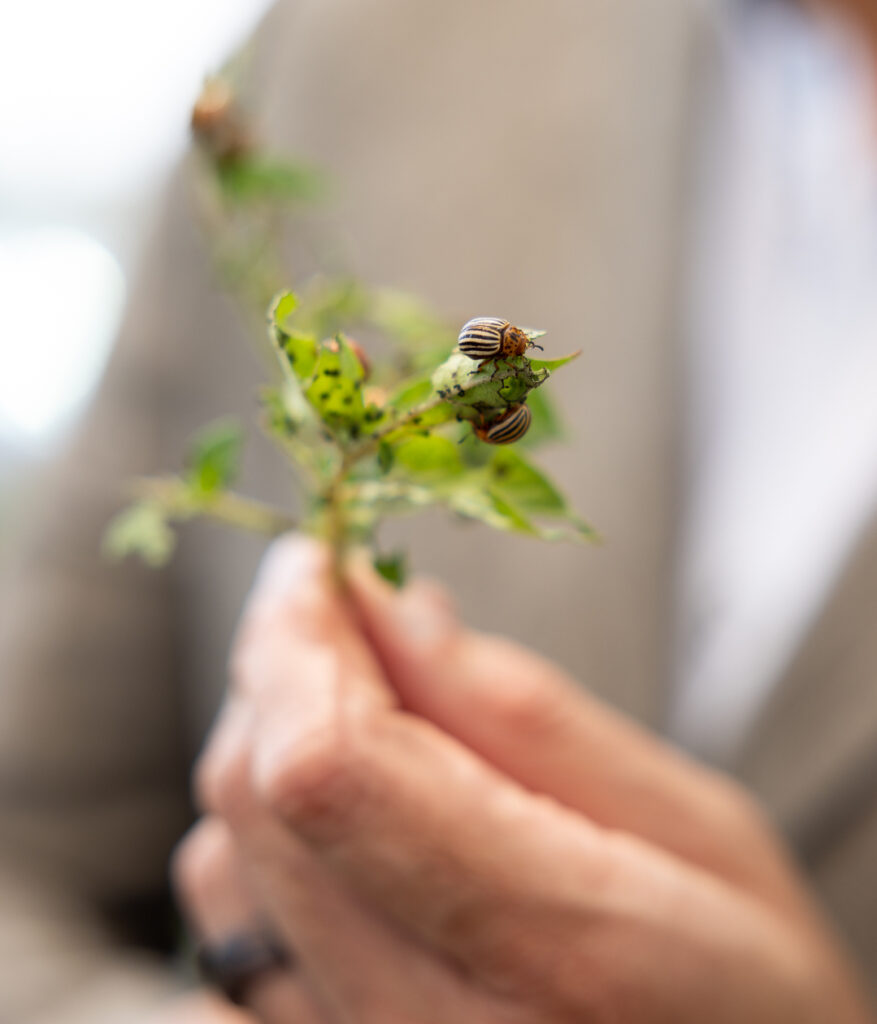
What have you enjoyed most about your time working in the UT Department of Entomology and Plant Pathology?
The people I get to interact with. I am fortunate to work in a department where everybody is very supportive, positive, and encouraging. I have been even more fortunate over the years to work closely with an amazing group of people in my laboratory. I take pride in the high diversity represented in our laboratory, which apart from other benefits, brings to the table different and very valuable perspectives when trying to find solutions to problems. I love mentoring and greatly enjoy watching students and postdocs grow into independent scientists and critical thinkers, and love to see them succeed in their new roles and positions once they graduate from the lab.
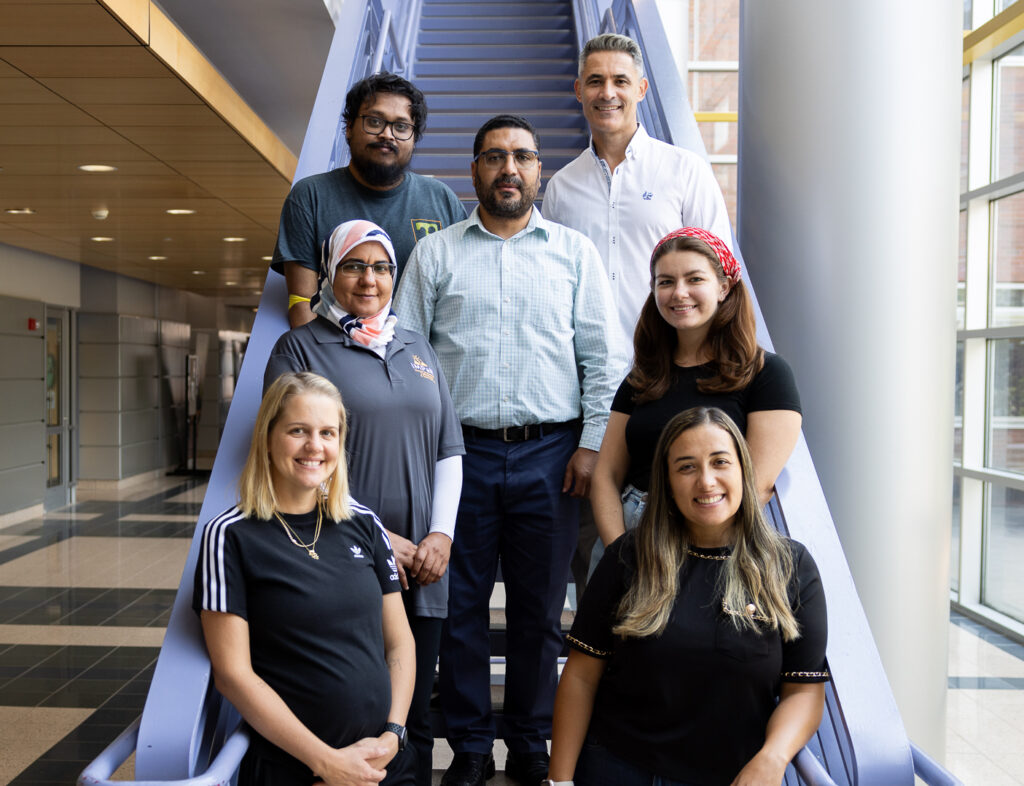
Can you describe your experience volunteering with the Farmer-to-Farmer program through the Smith Center for International Sustainable Agriculture? What did you enjoy most about it?
I heard from David Ader about the Farmer-to-Farmer opportunities in Cambodia, for which I am so thankful and glad I was able to contribute in this effort. Through this experience, I was able to directly interact with and educate students, growers, and extension agents in Cambodia concerning the control of the fall armyworm, an occasional pest in Tennessee that is currently devastating corn and other crops in southeast Asia.
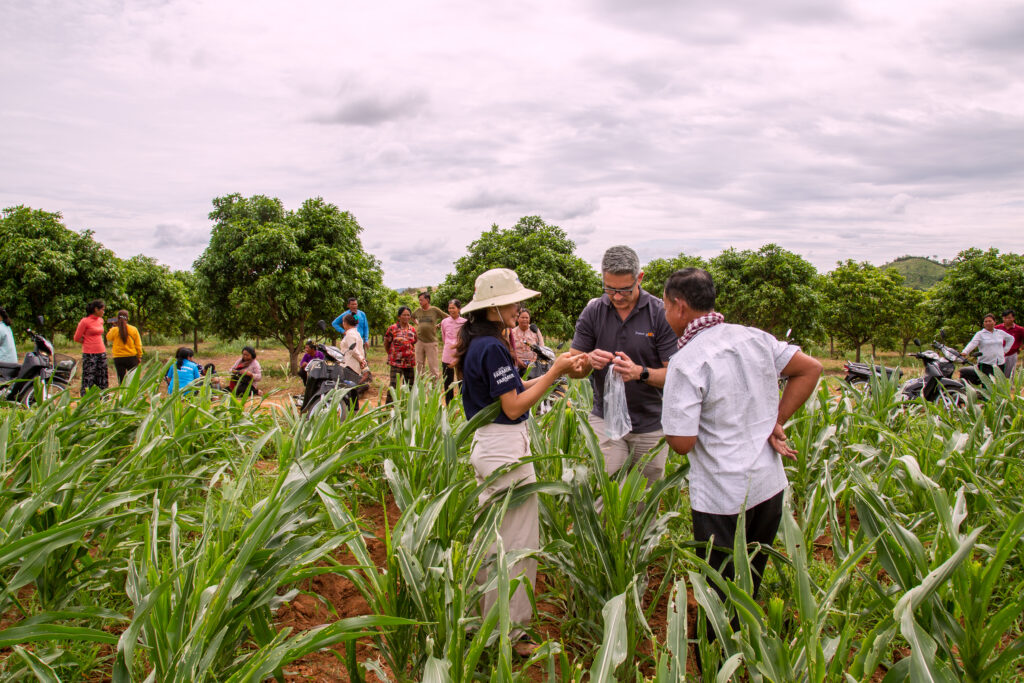
One of the things I enjoyed the most was the opportunity to present to students at Battambang University about entomological science and its importance. Because most students came from farming families, they quickly understood and valued how research in entomology can benefit food and fiber production as well as their health. On a more personal facet, my wife is half Khmer, so this trip allowed me the opportunity to experience first-hand Khmer culture and meet for a brief time with relatives that I had never met before.
What has been your proudest moment since working at UT?
I feel pride every time I get to present our work and about UTIA at scientific meetings. Some of the places I visited had never heard of UTIA, and I enjoyed sharing with them about the Institute, UT, and all the work we do to improve the lives of Tennesseans and beyond.
What is a project you are currently working on that you are excited about?
Among other exciting projects, we are working on resistance to transgenic corn in corn earworm and fall armyworm, and on gene silencing in Colorado potato beetle. Both projects are very exciting! The one on transgenic corn is very important because both pest species are quickly evolving resistance to Bt proteins and we are running out of options, so finding ways of preserving or improving Bt crop technology is critical to sustain the benefits of this technology.
In this project, we are also promoting the use of DNA-based tools to track resistance, which I think will reduce costs and greatly increase the sensitivity of resistance monitoring programs. Resistance to gene silencing is very timely because the first insecticide spray in history based on gene silencing technology is now approved for commercialization in the US. However, we do not know much about how resistance is going to evolve, so our work is critical to the sustainability of this technology and its benefits.
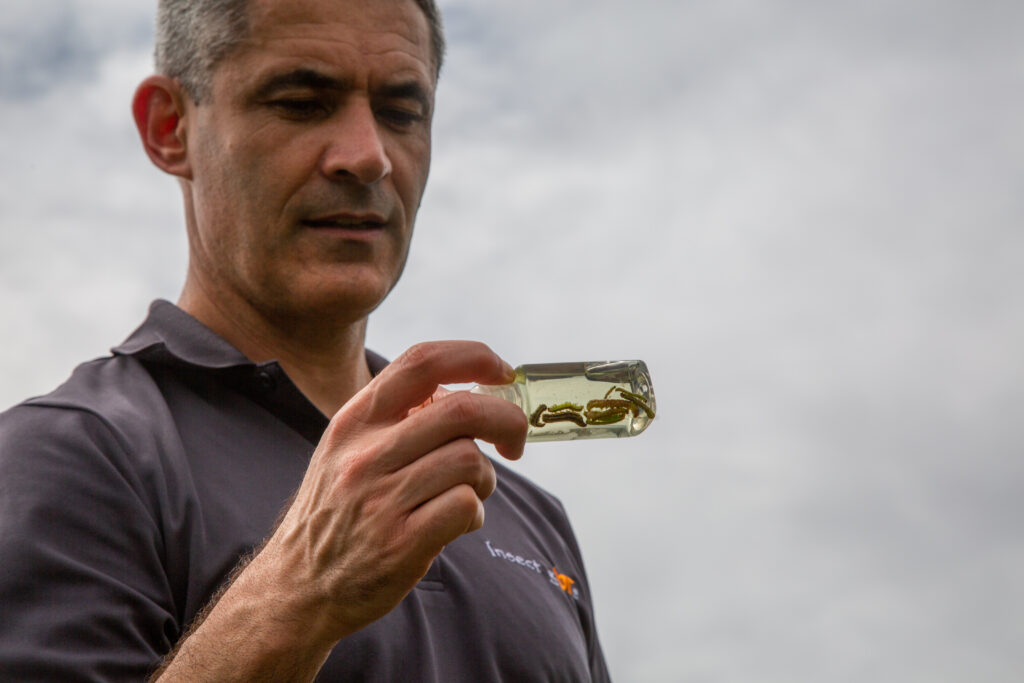
What are some #RealLifeSolutions you have discovered through your research that can benefit Tennessee farmers and beyond?
Our work aims to use biotechnology to develop safer and more environmentally conscious pest control tools and optimize their sustainability. Outcomes from our work have identified combinations of insecticidal proteins that reduce the risk of resistance and proteins that overcome resistance in insects resistant to transgenic crops. We have also developed DNA-based tools for resistance monitoring and identified proteins from insects that help the processing of plant biomass into ethanol biofuel.
What do you like to do outside of work and/or what is a fun fact about yourself that your colleagues and students wouldn’t know?
Everybody who knows me knows I am passionate about social Argentine tango dancing, soccer, and traveling. I have been serving as faculty advisor and resident instructor for the Argentine tango club at UT (VolTango), and my wife and I are heavily involved in the Knoxville Argentine Tango Society (KATS) group. We often travel to social Argentine tango gatherings to meet and share with fellow dancers from all over the world (we have danced in all continents except Antarctica!). Something colleagues may not know is that I also enjoy playing guitar. I have been playing since I was 17 in different bands, and nowadays I enjoy jamming with others or just playing with some music in the background.
